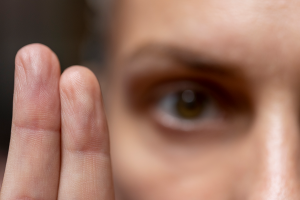If your teen has been diagnosed with Obsessive-Compulsive Disorder (OCD), you may be feeling overwhelmed and searching for answers. Parents of teens with OCD may consider therapy, but does it actually help? The good news is—yes, therapy can be highly effective for teens struggling with OCD.
Understanding OCD in Teens
OCD isn’t just about being neat or organized. It’s a mental health condition characterized by unwanted, intrusive thoughts (obsessions) and repetitive behaviors or mental rituals (compulsions) that your teen feels driven to perform. These symptoms can cause significant distress and interfere with daily life, school, and relationships.
How Does Therapy Help Teens with OCD?
Therapy for teens, especially Cognitive Behavioral Therapy (CBT) with Exposure and Response Prevention (ERP), is considered the gold standard for treating OCD in adolescents. Here’s how it works:
- Cognitive Behavioral Therapy (CBT): CBT helps teens identify and challenge the unhelpful thought patterns fueling their obsessions and compulsions.
- Exposure and Response Prevention (ERP): ERP gradually exposes your teen to feared situations or thoughts, while teaching them to resist performing compulsive behaviors. Over time, this reduces anxiety and the urge to engage in rituals.
Research shows that CBT with ERP can significantly decrease OCD symptoms, improve coping skills, and boost confidence. Many teens report feeling less anxious, more in control, and better able to focus on what matters to them.
Other Benefits of Therapy for Teens with OCD
- A Safe Space: Therapy provides a judgment-free environment where teens can talk openly about their experiences and fears.
- Family Support: Therapists often work with families to educate them about OCD and teach strategies for supporting their teen at home.
- Tools for Life: Teens learn practical skills for managing stress, handling triggers, and building resilience—skills that benefit them long after therapy ends.
While OCD can feel isolating and overwhelming, therapy offers hope and practical solutions. Early intervention is key—teens who get help sooner often experience better outcomes.If your teen is struggling with OCD, don’t wait. Our experienced therapists specialize in helping adolescents manage OCD and reclaim their lives. Contact us today to learn more about how therapy can make a difference for your family.







